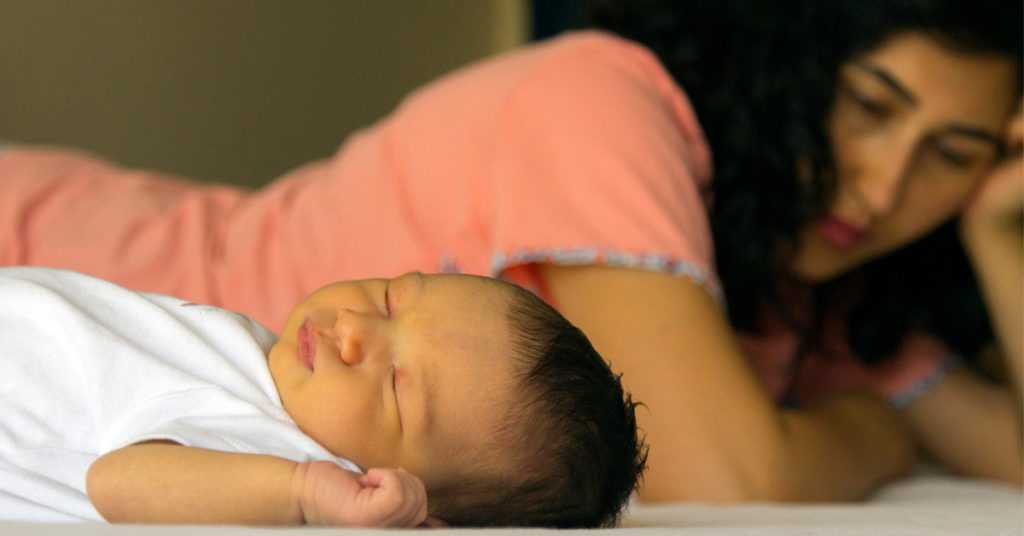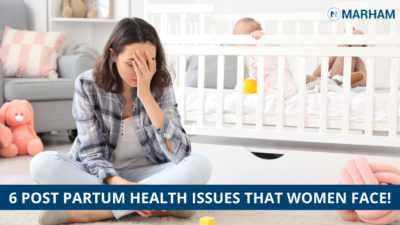Women usually focus on their health only during their pregnancies. Whereas they need more care during post partum period. The challenging period of 9 months of pregnancy affects the female body both physically and emotionally. And it takes almost 1 to 2 years to regain the body’s normal conditions.
There are many factors due to which women ignore their health issues. For example, women in developing countries like Pakistan do not take a balanced diet; their men are considered superior and take a better diet, despite living in the same house. Similarly, women want to give their best to their children; that’s why they do not focus on their health. Another reason is a lack of awareness about postpartum (after birth) care, and there is no proper counseling for post partum problems and their solutions.
Psychological issues are often left untreated and considered the least important. Hence women in our society suffer the most in this period of her life. And the outcomes of this ignorance come after the age of 35 when the body starts aging rapidly. So, if you are going through post partum depression, consult a psychologist.
There are many health issues which women usually face during the post partum period; here are some of the most common problems.
1. Breastfeeding and Problems Related To It
If you are breastfeeding your child, this is one case. Another case is when you cannot breastfeed your baby due to any reason. Sometimes after c-section delivery, new moms cannot do this task properly, and hence baby starts taking top feed. Another case is when you are not lactating properly, this produces discomfort in your breast like they become engorged or quite sore. And in this situation, the new moms also become emotionally depressed as they are not properly feeding their babies with their feed which is considered the best thing in the world.


In another case, when you are feeding your baby, you may feel pain during feeding and feel swollen breasts. For this, you can take a warm water shower and ibuprofen pain killers.
Lactation consultants should give proper lactation counseling. Health professionals should explain the right techniques and methods. And it should be clear that if you can not breastfeed your baby, it is not the end of this world, and you should not feel guilty for it. Try your best to breastfeed your baby but do not take this issue so seriously that it takes you into the world of depression.
2. Problems Related To Intercourse and Intimacy
After the vaginal delivery of the baby, sometimes the intercourse becomes uncomfortable and painful for up to 2 to 3 months. Both the physical and emotional stress makes the female body unable to the normal intercourse procedure. Usually, hormones are the reason behind this. Another reason is the diverted attention towards the newborn also causes a lack of intimacy.
3. Hair Loss
After three months of childbirth, the elevated hormones come to the normal level, which causes hair loss. In some women who are not taking proper diet, it becomes worse. The best solution is to take a balanced diet and multivitamins. But usually, it lasts for a few months and stops on its own.
4. Hemorrhoids and Fecal Incontinence
Hemorrhoids are the varicose veins of the anus; it usually occurs during pregnancy and pops out during labor. It is generally harmless, but it is painful. Lack of bowel movement is due to stretching and weakening of pelvic muscles, nerve injury to the sphincter muscles of the anus, and tearing during labor /delivery. This problem persists for a few months. Sometimes urine incontinence can also become a significant problem after childbirth due to similar reasons.


5. The Postpartum Emotional States and Postpartum Depression
Usually, we only know about postpartum depression. But many other emotional states can be seen in postpartum women, for example, euphoric, proud, anxious, sad, weepy, lonely, worried, shocked, confident, etc. But the most common feeling is being depressed or sad, or lonely. According to the research of women taking medical care, 50% of the women experienced depression for more than one year after birth. And women who are not taking any medical care, 30 % of them experienced depression for three years after childbirth. So, learn the six ways to support a mother struggling with Postpartum Depression (PPD).
6. Muscles and Joints Related Problems
During pregnancy, the female body undergoes various changes. One of them is a deficiency of minerals like calcium and iron. That is why after childbirth, women usually face problems like muscle aches and joint pains. Usually, the wrist and ankle joints ache. And the shoulder and calf muscles show issues. Various reasons behind these problems include deficiency of some essential minerals and vitamins, excessive use of any joint muscle, hormonal changes, etc. You can also read 11 indications of a hormonal imbalance.
These problems sound common and not very dangerous. Still, they are tough to face by an emotionally and physically unstable woman trying to fulfill her responsibilities as a mother. Sometimes women face one or two problems stated above, but in many cases, women face many issues simultaneously. Our society must understand that a healthy and happy mother can be a healthy and happy child. The woman in the postpartum state needs support both physically and emotionally. So proper health care counseling is needed. And proper postpartum check-ups should be done.
If you are also going through post partum health issues, you can talk to a gynecologist via Marham.pk.
FAQs
1. How long does the postpartum stage last?
2. Why do we cover head after delivery?
3. Does chocolate increase breast milk?
Caffeinated soda, tea, coffee, and chocolate are okay in moderation. Large amounts of caffeine, however, can dehydrate the body and reduce breast milk production. This can also negatively affect your breastfeeding baby.
Book an appointment now, to answer all your queries. You can book an appointment with the top gynecologists in Pakistan through Marham by calling at Marham helpline: 0311-1222398 or by online booking facility through the website or Marham mobile app.
Can’t Find The App?
Android Users:
https://play.google.com/store/apps/details?id=controllers.marham.marhammed&hl=en
Drop a review for us at Playstore if you’ve had a good experience!
iPhone Users:
https://apps.apple.com/pk/app/marham-find-a-doctor/id1095243102
Stay Home. Stay Safe!

